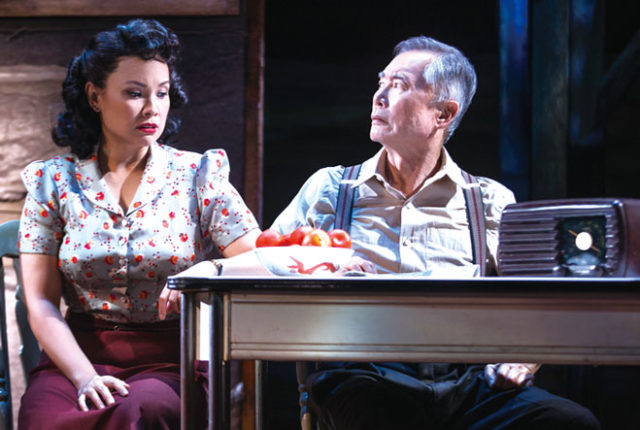
By David Yamaguchi
The North American Post
Unusual among my Baby Boomer peers, until recently I had not formed an opinion of George Takei, aka “Mr. Sulu.” For during the 1960s and 1970s, my parents restricted TV access for my siblings and me. Accordingly, while we managed to catch an episode of “Star Trek” now and then—mainly at grandpa’s house—we did not get to know its characters and actors well.
That lack of familiarity with Mr. Takei changed with his July 20 Facebook appeal to the Hispanic community at large—in fluid Spanish—using the example of internment to urge them to vote against Donald Trump. Mr. Takei was able to do this owing to his childhood growing up in East L.A. There, Spanish had been the language for playing in the streets.
More recently, I had to laugh on reading Mr. Takei’s Sept. 16 Twitter response to Donald Trump’s admonishment of Barack Obama for stumping for Hillary Clinton instead of “running the country.”
Mr. Takei’s to-the-point reply: “As Commander-in-Chief, he is sworn to protect us from threats, both foreign and domestic. You, sir, are the latter.”
Most recently, there has been Mr. Takei’s timely commentary, reviewed in the Huffington Post (Nov. 9), in which he describes how we are going to get through the next four years. Across this interval, there is every indication that Hispanics will indeed face increased risks of deportation and Muslims will continue to be harassed.
Mr. Takei’s words:
“I am writing this to all who voted to defeat Donald Trump and what he represents. We may not have prevailed, but we must not despair.
“Many of you are, like me, in a state of shock. This does not feel like the America you love and honor. We are in uncharted waters.
“In times like these, we must reaffirm the values we cherish and have fought for: equality, justice, the care of our planet…”
“We must stand up defiantly to any dark or divisive acts, and look out for the most vulnerable among us….”
In short, actor/activist Takei is saying that we must be like the people who saw injustice being done to Japanese Americans during World War II, and did what they could, through measures great and small, to help JAs.
Throughout, Mr. Takei has been harnessing his name recognition not for personal gain, but in the cause of the good of the country. I have to respect a guy like that.
All this brings me to Mr. Takei’s recent acting stint in the Broadway musical, “Allegiance,” which ran for 113 performances (Oct. 2015-Feb. 2016) until lagging ticket sales forced its closure.
Like many, I had two thoughts on hearing about the play. First, it was outstanding outreach to East Coast Americans unfamiliar with JA history. At the same time, showing the play only there was “mottai-nai”—too good to waste. For JAs who would have helped fill theater seats mainly live on the West Coast.
“Maybe it will come to the West Coast,” I remember a fellow JA commenting to me during the summer.
Well, “Allegiance” is coming now, but not in live-theater format. Instead, it will arrive as the next best-thing: as a film of the original Broadway production.
“Allegiance” follows the story of a fictional Kimura family from their farm in Salinas, Calif., to the Heart Mountain internment camp, Wyoming. It is based on Mr. Takei’s life.
Like “Chushingura”—the story of the 47 loyal ronin [masterless samurai]—for Japanese natives, “Allegiance” is the kind of play where JA viewers will know the tale before attending. Still, we show up nonetheless, to see the art with which the story of our people is conveyed.






